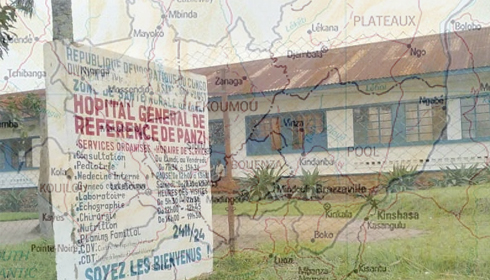
Global Community Urged to Act as Mysterious Illness Spreads in Congo, Threatening Thousands of Lives
A flu-like disease of unknown origin has taken dozens of lives in the Panzi health zone of Congo’s Kwango province, underscoring the vulnerability of health systems in neglected areas and the urgent demand for global action. From November 10 to November 25, local authorities confirmed a staggering 67 to 143 fatalities, presenting symptoms such as fever, headache, cough, and anaemia. Provincial health minister Apollinaire Yumba asked the citizens to avoid contact with dead bodies to limit the risk of contamination while insisting on the need for international aid to tackle the crisis.
The outbreak reveals the glaring systemic vulnerabilities in Congo’s rural healthcare infrastructure, where weak surveillance, inadequate resources, and logistical hurdles significantly amplify the impact of emerging diseases. Jean Kaseya, head of the Africa Centres for Disease Control and Prevention, stated, “Initial diagnostics suggest it is a respiratory disease, but we must await the laboratory results.” His statement underlines the urgent necessity for rapid identification and decisive action to control the disease before it spreads and take a more serious turn.
The region’s geographical isolation, 435 miles from Congo's capital, Kinshasa, and its inadequate testing capacity have significantly hindered timely diagnoses and interventions. “The health system is undeniably weak in our rural areas,” asserted Dieudonne Mwamba, head of Congo’s National Institute for Public Health. While transporting samples over 500 kilometres to Kikwit for testing is essential, it significantly hinders the urgency of understanding and combating the disease.
Panzi’s precarious state undeniably exacerbates the crisis. Malnutrition affects forty percent of residents, rendering them especially susceptible to illnesses. Historical outbreaks, such as the typhoid fever incident two years ago and the ongoing resurgence of seasonal flu, are undeniably placing additional pressure on local health services. This intricate landscape highlights the necessity of acknowledging regional vulnerabilities in the fight against emerging health threats.
The swift rise in cases in Panzi demands immediate attention and action to ensure global preparedness against a potential pandemic-scale crisis. The outbreak, which has reported approximately 380 cases, nearly half of which involve children under five, demonstrates the potential for localized health emergencies to spiral out of control due to delayed action and inadequate infrastructure. Rémy Saki, the deputy provincial governor, said that epidemiological experts collect samples to ascertain the transmission and infectiousness of the disease.
Congo’s battle with this unidentified illness mirrors the challenges encountered during the mpox epidemic, which has claimed more than 1,000 lives in the nation. The WHO highlights that Congo’s fragile health systems and inconsistent reporting pose substantial challenges in effectively addressing public health emergencies.
The global community must unite to strengthen health systems, provide medical supplies, and foster scientific collaboration in regions like Congo to prevent another pandemic. Yumba and other local experts emphasize the critical need for international aid, stating that "national and international partners" must intervene with diagnostic tools, medicines, and personnel to prevent further loss of life.
The involvement of the WHO, in conjunction with the Africa CDC’s investigative teams, reinforces the essential function of global organizations in the realms of disease surveillance and containment. Sustainable solutions demand investment in local health systems, the enhancement of early warning mechanisms, and the establishment of equitable access to healthcare resources.
The Panzi outbreak demands immediate and decisive action from the global community. Lucien Lufutu, a local civil society leader, condemned the reliance on traditional medicine stemming from the dire shortage of supplies in Panzi’s hospital, which exacerbates the crisis. “Given that the disease remains unidentified, the majority of the population relies on traditional practitioners for treatment,” he asserted.
Ignoring such warnings is simply not an option for the world. The global response to localized outbreaks like Panzi's, whether through immediate aid or long-term capacity building, will decisively shape our collective resilience against future pandemics. Kaseya made it clear: “There are many things still unknown about the disease,” emphasizing the critical need for unified action.